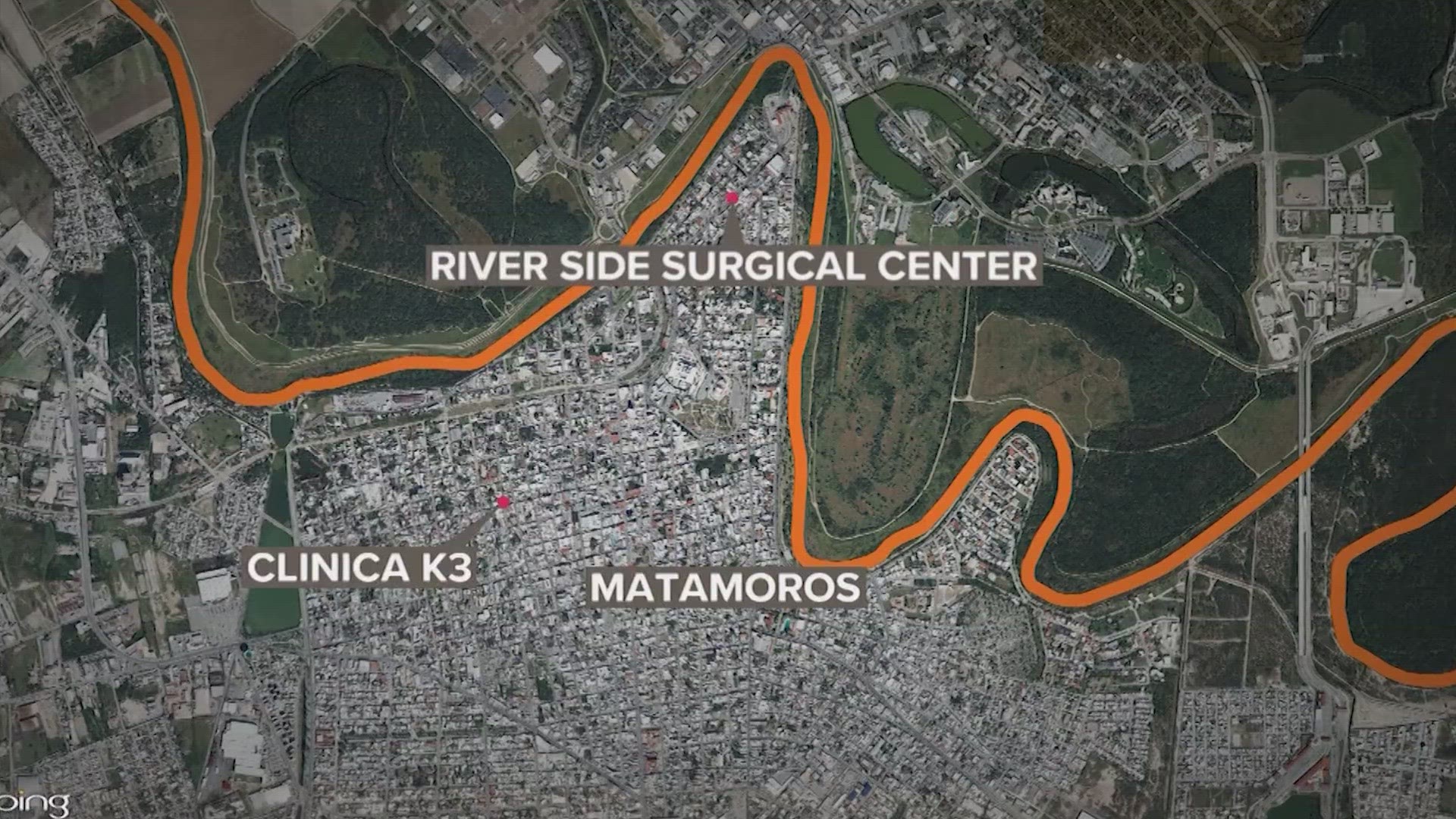Texas health officials confirm a fourth death from a meningitis outbreak linked to clinics in Matamoros, Mexico.
The outbreak is linked to two cosmetic surgery clinics across the border.
The Centers for Disease Control and Prevention said anyone who got surgery with an epidural in Matamoros this year should see medical care immediately.
Officials have identified and closed two clinics linked to the outbreak, River Side Surgical Center and Clinica K-3.
The Mexican Ministry of Health sent the CDC a list of 221 U.S. patients who might be at risk for meningitis based on their recorded surgical procedures at either clinic from January to May 13.
Three additional patients not on the list have also been identified, bringing the total of people in the United States known to have potential exposure to 224, the CDC said.
The CDC is working with more than two dozen state and local health departments to contact people with potential exposure and urge them to go to their nearest medical facility for testing. Meningitis testing includes an MRI and a lumbar puncture, also called a spinal tap.
In May, the CDC issued a warning to U.S. residents to cancel surgeries in Matamoros, saying five people from Texas who had procedures there developed suspected cases of fungal meningitis.
What is fungal meningitis
Meningitis is the swelling of the protective covering of the brain and spinal cord and should be treated urgently.
Signs of meningitis
Symptoms include fever, headache, a stiff neck, nausea, vomiting, confusion, and sensitivity to light. Cases of meningitis can be caused by viruses, bacteria, trauma, or fungi.
Patients in the Texas cases started showing symptoms three days to six weeks after surgery in Matamoros.
For people with potential meningitis exposure
From the CDC:
- Go to the nearest emergency room as soon as possible to be evaluated for fungal meningitis, even if you do not currently have symptoms.
- Some people without symptoms or with mild symptoms have tested positive for infection and started treatment. Receiving treatment early can prevent severe illness.
- Fungal meningitis can start off mild and very quickly become a life-threatening illness.
- Consider printing and sharing this web page to help make sure staff and healthcare providers are aware of the situation and recommended tests.
- If you cannot go to an emergency room (for example, because it is too far away), consider calling your local health center or urgent care facility to see if they can do spinal taps. In most situations, the emergency room will be the best or only option for testing.
- When you arrive, tell the emergency room staff that you need to be evaluated for possible fungal meningitis. Tell them that you recently had epidural anesthesia at one of the clinics in Mexico involved in this outbreak.

